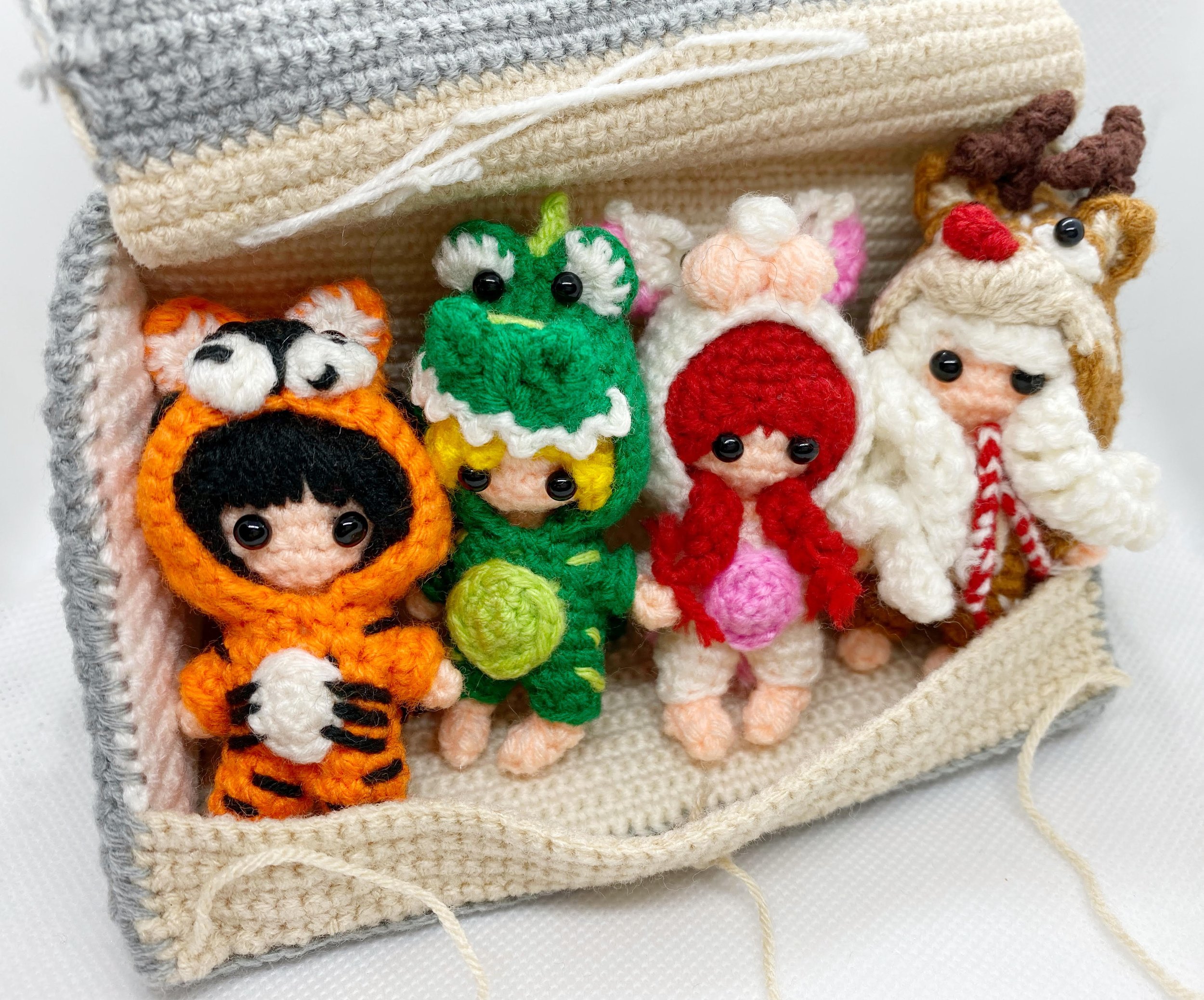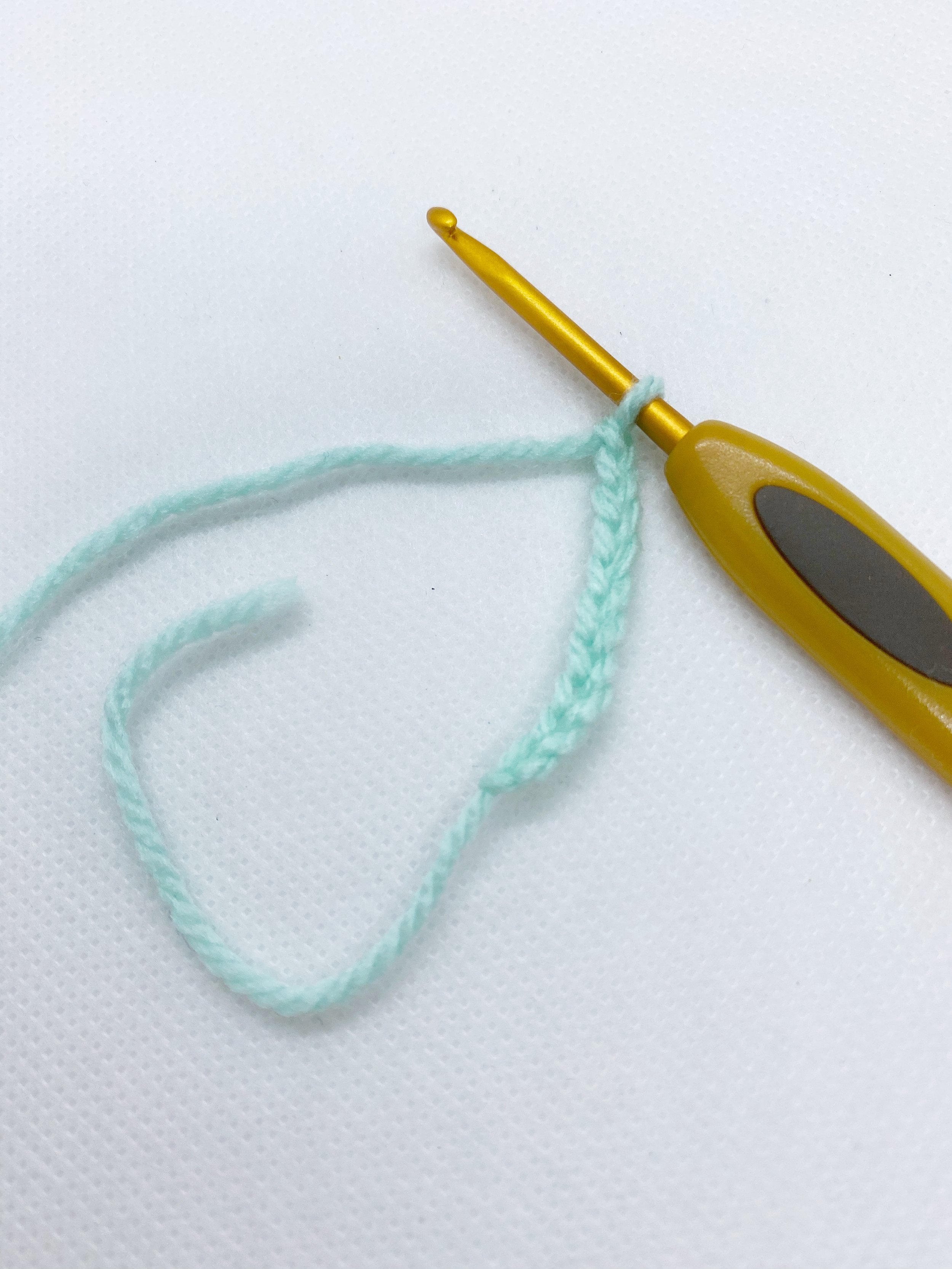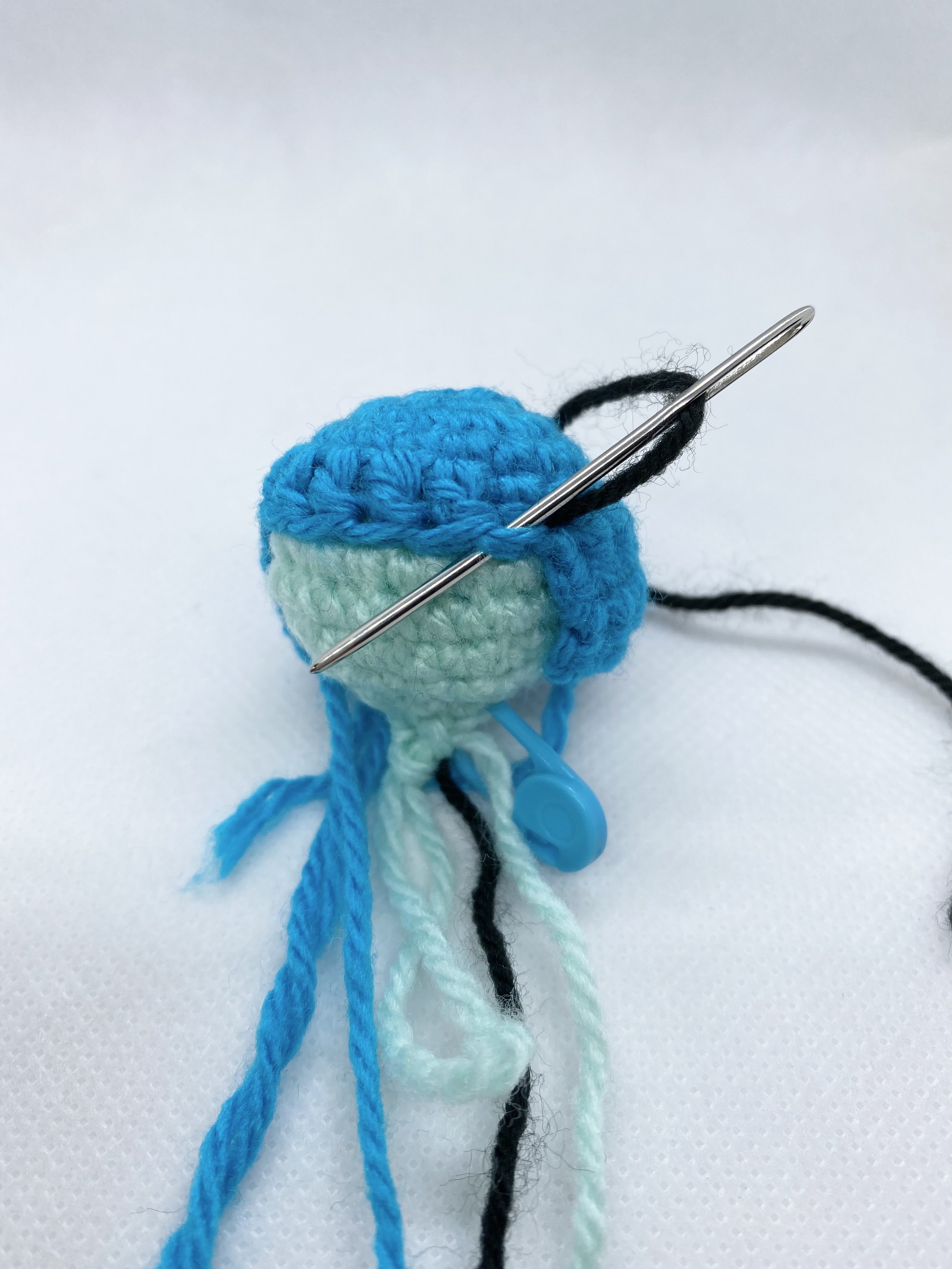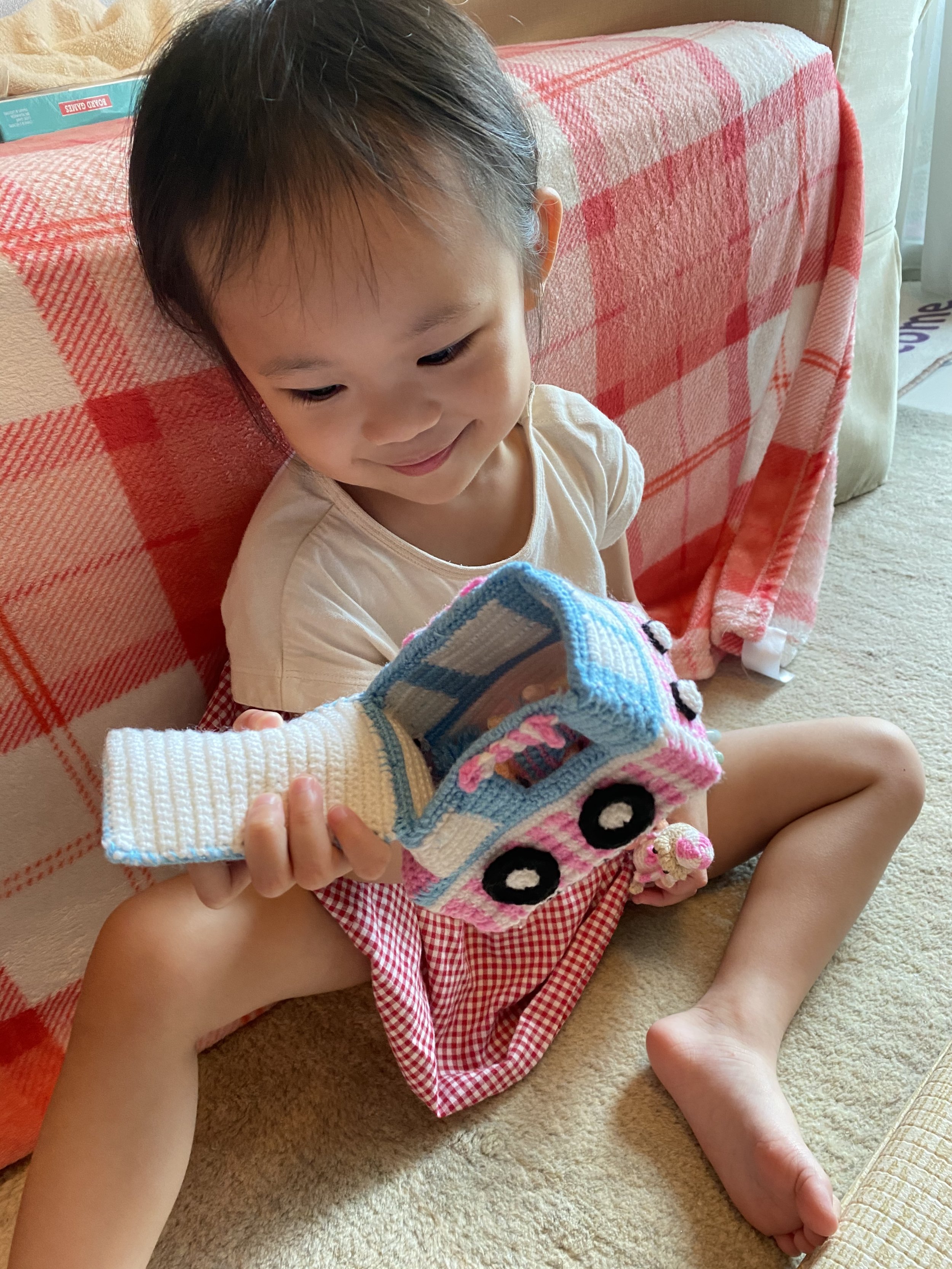Is Amigurumi Different from Crochet?
Let us clear any confusion with regards to whether amigurumi is the same as crochet. If you are a crocheter and thinking of trying out amigurumi, read on to see how similar or different they are.
Table of Contents Show
What is crochet?
Crochet is a form of handicraft in which yarn is made up into a textured fabric by means of a hooked needle.
What is amigurumi?
Amigurumi is the Japanese art of knitting or crocheting small stuffed animals and dolls. The word is derived from a combination of the Japanese words ami, meaning crocheted or knitted, and nuigurumi, meaning stuffed doll.
Is amigurumi different from crochet?
To create amigurumi which is the final stuffed animal or doll, one could use the crocheting method or knitting method. Crocheting is the means with which you could create Amigurumis, which is the final outcome.
Crocheting could also involve many other techniques to create different outcomes like blankets, garments, hats, socks, scarfs and many other wearables. So simply put:
Crochet = method of creation
Amigurumi = outcome
How is amigurumi different from crochet?
To explain how amigurumi is different from crochet, let’s go through the various aspects of each one systematically.
1) Equipment needed
Both crochet and amigurumi need some basic supplies like yarn and a crochet hook. If you are just starting out and want to try out crochet, just getting these 2 supplies for now can be good enough until you sharpen your skills.
Yarn
For crochet in general, oftentimes choosing the yarn is based on what is the final outcome. For summer garments, cotton is a popular choice while winter garments made from wool is preferred. Amigurumi on the other hand, is best made with cotton or with acrylic. Acrylic yarn tends to give the amigurumi a more solid outline with a fuzzy appearance and are a cheaper choice. Cotton yarn creates a softer look and is generally preferred for Amigurumis made for babies and younger children.
Crochet hook
The go to sizes for crochet hooks for Amigurumis in general tend to be smaller. In fact, to try and reduce the gaps in Amigurumis, using a crochet hook that is one sizer smaller than the suggested size for the yarn will help. A good size to start off with would be 3.0mm, generally to make my mini Amigurumis I used 2.0mm to minimize the gaps. Of course, with jumbo amigurumi, using the corresponding sized hooks and yarn can transform a mini amigurumi pattern into a big one.
As for the next 3 types of equipment, these are specifically used in amigurumi that are not necessary when just doing other types of crochet work.
Darning needles
Darning or tapestry needles are thicker needles that are used to sew different amigurumi parts together. They are also useful for finishing off the amigurumi right at the end when closing up. With most of my seamless crocheting patterns, I usually try to minimize the sewing because the assembly part is always the most unpopular part!
Stitch markers
Making Amigurumis involve crocheting in a round and that often means that it is easy to lose track of where you started the round. Stitch markers are placed at the beginning of the round to mark the start, so that you would be able to keep count of your stitches. These are not really used for other types of crochet except in situations where rounds are needed like perhaps sleeves of a garment.
Safety eyes or glass eyes
These eyes are attached to the amigurumi either in the midst of the head pattern or after the full amigurumi is completed. Also specifically used for just amigurumi. Alternatively, you could use yarn to sew onto the head as eyes, especially for Amigurumis for children.
2) Crochet Techniques involved
When starting out with learning crochet, you usually have to master basic crochet stitches like slip knot, foundation chain, single, half double and double crochet stitches.
There are some similarities with amigurumi, like single, half double and double crochet stitches are equally important in amigurumi. Their final appearances look somewhat different when done on a flat surface in crochet versus in a round for amigurumi.
For amigurumi on the other hand, the important basic crochet stitches include magic ring, increase, invisible decrease, colour changes and closing up. These are all reusable techniques and done with the right variations, can produce very different Amigurumis at the end. Unlike crocheting, which for larger pieces, can get quite repetitive.
As for special crochet stitches which are often reserved more for crochet, I have figured out some ways to incorporate into amigurumi too! Some examples include bobble, popcorn, picot, loop and even tunisian on one occasion!
3) Shapes created
The core of amigurumi making includes all the different shapes you can create. For crochet, you mostly end up with 2D shapes, while for amigurumi, it is made up of 3D shapes. So for crochet you get a circle, while for amigurumi you get a sphere. Oval versus ovoid, rectangle versus cylindrical, leaf-shaped versus biconvex and so on. From a 2D image to recreate a 3D amigurumi can be quite a lot of fun, once you start figuring out the right shapes to create the right outcome. This is what amigurumi shaping is all about.
4) Additional steps involved
For Amigurumis, there are some additional steps involved that are not essential for crochet. These would include stuffing to fill the amigurumi, which most crocheters tend to use polyfil or sometimes recycled yarn strands. Also, sewing is quite a big part of making amigurumi. With seamless crocheting, a lot of that can be cut down, like sewing on head, arms and legs. However, sometimes with detailing, a little bit of sewing with a darning needle is still needed.
5) Time required to make
Time needed to make crochet projects can vary quite a lot, for simple hats, socks and scarfs they could work up quicker, while for blankets and garments, it could be very time-consuming.
As for Amigurumi projects, they tend to be shorter, even shorter if using seamless techniques without sewing. If you make them small, it could even be whipped out in less than an hour.
Why amigurumi over other forms of crochet?
Every crocheter has a different view on what they love crocheting. When starting out with crochet, try some simple patterns like rectangles and circles. Circles that can be made into coasters, which can then be made into spheres. Join a sphere as a head and a cylinder as a body to get an amigurumi body.
Here are some reasons to choose amigurumi over other types of crochet - projects can generally be fast so you can cut down on WIPs, expand your creativity with different types of amigurumi shaping, gift a child the final toy because the look on a child’s face when you gift them a handmade amigurumi toy is simply priceless.
If you have read this article and want to try giving amigurumi a shot, start here with ‘How to Get Started with Amigurumi in 8 simple steps’ or if you are a little farther along, join me in this 5-day free email crochet-a-long challenge below. ->









